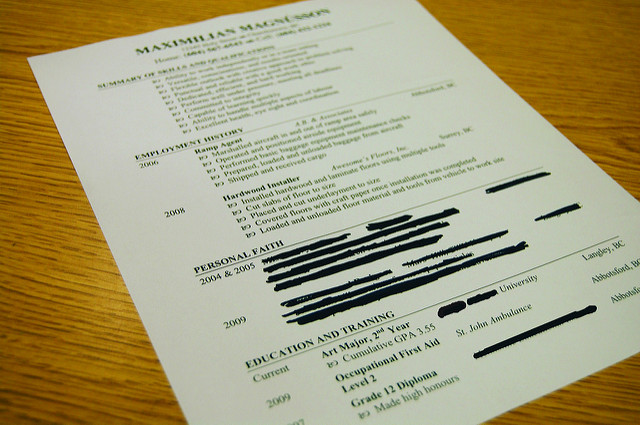5 Red Flags on Your Resume and How to Deal With Them

Are you sending what you deem to be a perfectly crafted resume but never hear back from prospective employers? While you’re probably aware that you are not alone in this, this situation is no doubt frustrating, to say the least. The thing is, there may be red flags on your resume. While you might not think much of these, recruiters certainly do.
Here are some of the things recruiters might be wary about from your CV and what you can do to about them before sending out your next resume.
Employment Gaps
Employment gaps can result from individual choices or issues out of your control. Either way, these are a warning sign to most employers.
While this is not necessarily the kiss of death, it needs to be handled carefully. Without clarity on the reasons behind the gap, you leave it open to speculation.
Trying to ignore or conceal the gap is not the best way to handle it. Instead, use a paragraph of your cover letter to speak on the gap briefly.
Whereas there is no formulae to go about this, be forthright and find a way to term the gap as a one-off event, as opposed to something you seek to do every so often.
Evidence of a Stagnated or Regressing Career
A career that is progressing as it should shows in the job descriptions, job titles, and remuneration.
Whenever these indicators are lacking, a recruiter will wonder why.
Similarly, evidence of decreasing job responsibilities shows a plateaued career. If anything, this is more incentive to keep your career on the up and up.
Enrolling for courses to improve your skill set, going the extra mile at work, and even asking for more responsibilities are a few ways to show a current employer that you are ready for a promotion. Promotions indicate career growth.
No Measurable Results
Resumes that are not clear on measurable results and accomplishments come off as vague to employers and show a lack of confidence in yourself as a job seeker.
Employers look at this part of your resume to help them summarize your value Vis a Vis your academic and professional background.
The goal is to find a candidate that can deliver certain results. If you are not able to articulate this in your resume, then your value can not be forecasted, which becomes a matter of concern.
To fix this, look at your appraisals, think about your bottom lines and time frames to come up with accurate achievements you have overseen in your current role.
Disregarding Instructions
A credible employer will clearly outline all the required documentation and application process.
It is important to follow this to the letter, as it communicates your ability to take direction.
To make a great first impression, read the requirements, and ensure to prepare your application systematically so as not to miss anything.
If they require not less than three pages, trim your resume to fit the stated length. Provide a salary history if it’s required, and so on.
Grammar, Spelling, and Punctuation Errors
These are red flags as they come off as a general lack of attention to detail.
Your CV is the first step for an employer to sift excellent from those that are less so.
How you present your resume, including how well you have proofread your document, can be as good a reason as any not to shortlist you.
In any case, an employer would not want to have a sloppy employee on their team.
Put Your Best Foot Forward
While this list is not exhaustive, it provides you with a snapshot of the often-overlooked resume mistakes that might be costing you jobs time and again.
Aside from smoothening these out, have other professionals, HR, and otherwise, look at your resume and point out anything that does not reflect the professional you are.

